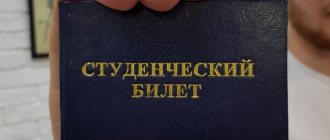It’s no big secret that a brother and sister are considered close relatives. If suddenly one of them dies, then the living brother or sister becomes the legal heirs of the property belonging to the deceased, since they are heirs of the second line of descent or become heirs according to the will. In case of incapacity for work or being dependent on a brother or sister of the legal successors, the inheritance is divided in equal parts between the heirs of the above order, without taking into account the fact of the existence of a will.
Which order does the testator's brother belong to?
To identify individuals who have the legal right to receive an inheritance, it is first necessary to determine whether the deceased made a will. If there is a will that sets out the circle of recipients of the deceased’s inheritance, then the property is distributed based on the text of the specified document. The only exception to this rule is the appearance of compulsory heirs who have the legal right to inherit property without taking into account the text of the will. A number of these individuals may consist of the disabled parents of the deceased, the disabled husband or wife of the deceased and other individuals.
If there is no will or there is other property subject to inheritance other than that specified in the testamentary document, then the circle of inheritance order must be determined based on the legislation of the Russian Federation. According to the Civil Code of the Russian Federation, in the case of this option, the estate is distributed in the prescribed legal manner.
There are seven lines of heirs. Typically, the first three are involved in entering into inheritance rights:
- The heirs of the first stage are the children, spouses and parents of the testator. In the event of the death of the children of the deceased or their refusal to inherit, the property is inherited by the grandchildren of the deceased;
- The second degree of priority includes brothers and sisters (including step-parents), grandparents of the deceased. In the event of the death of brothers and sisters or their refusal of property, their children become the inheritors of the inheritance;
- The third degree of priority includes the uncle and aunt of the deceased. If they die, then their children become heirs.
The main important rule of inheritance of these queues is that only in the absence of successors to the inheritance of the previous queue, the heirs become the individuals of the next related queue.
Example
After his death, the testator was survived by the following relatives: daughter, sister and aunt. The entire inheritance will be received by the daughter, since she is the heir of the first degree, given that the sister and aunt are heirs of the second and third degree, respectively, they will not receive the inheritance. Considering the option that the deceased is survived by a grandmother and uncle, then the grandmother becomes the heir, who belongs to the second degree of inheritance, and the uncle is left with nothing.
The property is divided in equal parts between the heirs if they belong to the same degree.
Example
After the death of the testator, his daughter, son and mother remained. All heirs belong to the first line of inheritance; in this situation, the inheritance is divided into three equal parts.
If there are compulsory heirs, the heirs have been declared unworthy, and the deadline for accepting rights to the inheritance has passed, then it will be more difficult to determine the circle of heirs.
The procedure for entering into an inheritance left by a sister
The notary can tell you how the inheritance is divided when the brother goes to write a statement. Knowing when your sister died, it is easy to calculate the deadline for entry. This is six months from the date of death. During this period, you need to contact a notary. A package of documents indicating the availability of acceptance rights is prepared in advance. If the deceased has appointed her brother as successor, a certificate is issued for the entire amount of the inheritance. Otherwise, the property is distributed in equal shares. The part remaining after the allocation of obligatory shares is subject to division.
Formal acceptance of property
You will have to go through all stages of the procedure in this order. The brother collects the necessary documentation, submits an application to the notary, and waits for the outcome of the inheritance arrangements. What documents are needed to enter into an inheritance will be discussed in the corresponding section of the article. But if the brother died, but managed to make a claim, his share is inherited by his relatives (children, spouse) and does not return to the general inheritance.
After the notary has completed the assigned functions, the brother will receive a certificate allowing the property to be re-registered in his name. To enter into inheritance after the death of a brother, the sister will have to go the same way. But remember that if you inherited, say, an apartment, you will have to pay a duty of 0.6% of its price, as well as pay utility bills, if any.
Actual way
This path does not require the involvement of a notary. All you have to do is contact your local government. The heir writes a letter with a request to re-register the property as property. The death of the owner is proven by providing a death certificate. It is worth remembering that entry into inheritance after death also occurs after six months. Re-registration of the owner's rights is mandatory. Rosreestr must mark the change of owner and issue the relevant papers.
When does it work?
If the brother lives in the apartment, uses the property, makes repairs, then receiving an inheritance is possible. Rights are formed when the brother pays for utilities and maintains his home in order at his own expense. This gives the right to actually claim the inheritance. Everything that is on the premises is also transferred to him by the right of actual inheritance as jointly acquired property.
How can a brother inherit the property of the testator?
Brothers and sisters can inherit the property of the deceased both according to the law and according to the will. Adopted and blood relatives claim equal rights to property.
Who is the first priority heir after the death of his brother?
Read about renouncing an inheritance in favor of your sister here.
Who is legally the heir of the second stage, read the link:
In law
Art. 1141 of the Civil Code of the Russian Federation states that persons who have rights to inheritance are called upon in an order that depends on the queue. Children, parents and spouses of the deceased are called upon first. In case of their absence or refusal of inheritance, recognition as unworthy (Article 1117 of the Civil Code of the Russian Federation), representatives of the second priority receive rights to inheritance.
Brothers and sisters are classified as second-priority heirs (Article 1143 of the Civil Code of the Russian Federation). If they cannot inherit property on their own, their children receive these rights. Nephews and nephews of the deceased have the right to inherit property by right of representation, receiving part of the property of the deceased heir in the event of his death.
There are three options that do not allow inheritance by right of representation:
- In case of deprivation of the heir's rights to property, if the corresponding order is included in the will;
- If the heir is recognized as unworthy;
- In the event of the death of the heir on the same day as the testator or the death occurred before the moment of opening the rights to the inheritance.
By will
In Art. 1118 of the Civil Code of the Russian Federation spells out the rules of inheritance according to a will:
- a will consists of the dispositions exclusively of one person;
- the mentioned orders gain legal force after the death of the person who made the will.
- the will cannot be changed from the moment it comes into force.
- drawing up a will is the only way to dispose of your own property in the event of death.
- a disabled person does not have the right to make a will.
- drawing up a document by a proxy is not allowed.
The preparation of a will is carried out strictly according to the rules specified in Art. 1124 of the Civil Code of the Russian Federation. Having certified this document, the testator is not obliged to voice it to outsiders. The notary, witnesses and other people involved in the certification of the will undertake to maintain the secrecy of the text presented (Article 1123 of the Civil Code of the Russian Federation).
The brothers and sisters of the deceased, whom he included in the will, have the right to receive the part of the inheritance specified in the document. The testator has every right to disinherit any of the relatives. If the legal heirs enter into inheritance rights in accordance with the will, then their turn does not matter.
The testator's brothers and sisters have the right to accept property as designated heirs (Article 1121 of the Civil Code of the Russian Federation). If the recipient refuses the inheritance for any reason, its part passes to the designated heir.
Are adopted children close relatives?
The Family Code does not recognize adoptive parents and those adopted by close relatives for the same reason of lack of consanguinity. However, there is an exception to this rule. For example, if a man marries a woman who has a child and adopts him, that is, the name of this man is recorded in the “father” column on the child’s birth certificate, then they will be considered close relatives to each other. If he remains in the status of a stepfather, then there can be no talk of kinship. Children adopted from an orphanage will not be defined as close relatives.
However, according to Article 137 of the Family Code, despite the lack of kinship with the adoptive parent, adopted children will have all the same personal and property rights and obligations in relation to adoptive parents as natural children.
That is, despite the fact that there is no family connection between the adoptive parents and the children, he will have all the same rights as close relatives.
How is inheritance distributed among relatives?
If the deceased does not have the desire to make a will, the procedure for inheriting property belonging to him is regulated by the laws of the Russian Federation.
The existence of a will obliges the notary to act in accordance with the text specified in it:
- According to the laws, the distribution of property between relatives is carried out in a certain order;
- The property is provided to the heirs in equal parts. The exception is individuals who follow the right of inheritance.
The order of receiving an inheritance looks like this:
- spouse of the deceased, daughter or son, mother or father (according to the right of representation, there may also be grandchildren and their heirs);
- grandmother or grandfather, other children of the family (nephews according to presentation);
- uncles and aunts of the deceased (if there are no heirs of the previous line), including cousins according to the right of inheritance.
In the absence of all of the above heirs, who have refused or been deprived of inheritance rights, the rights to the property may pass to other relatives (great-grandparents, children of nephews, grandchildren, and so on).
Was the Recording helpful? No 13 out of 21 readers found this post helpful.
How to avoid a quarrel
There are many options to resolve any conflicts related to property and choose the best option for dividing property that will please everyone.
In order to avoid troubles and quarrels, it is worth agreeing on the division of property peacefully, concluding an agreement that secures the right to one or another inherited property for each of the relatives. The ability to reach an agreement and good relations between relatives will eliminate the need to go to court, proceedings that can last for a long time.
What state duty is paid?
Please note! In the process of accepting an inheritance, a state fee is paid. Its size depends on the degree of relationship between the heir and the testator:
- Heirs belonging to the first priority pay a state duty in the amount of 0.3% of the value of the inherited property;
- All other heirs contribute an amount of 0.6% of the value of the property received by inheritance.
In this case, the maximum amount should not exceed 1 million rubles.
Ownership of inherited property is possible only after a notary has issued the appropriate certificate, which cannot be obtained without paying a state fee.
The amount of the state duty directly depends on the value of the property. It will not be possible to accurately calculate this amount without the help of professional appraisers. Therefore, it is better to seek help from specialists - an appraisal bureau or lawyers who deal with inheritance cases.
Can a brother claim his brother's inheritance?
If the heir is a brother, all rules regarding the acquisition of property apply to him in the same way as to a sister. Between them, values are divided in equal parts by law or will, if in the latter the shares of each were not determined.
Example. The family consisted of an elderly man, two brothers and an adopted daughter. After their father's death, they inherited the house, which was divided between them in equal parts (1/3 each). After some time, one of the heirs dies. He bequeathed ½ of the property to his cohabitant (that’s 1/6 of the house), and the other half was legally inherited by his brother and sister. They get 1/12 of the share of the house left behind.
Formal method of acceptance
It is best to register the received inheritance with a notary.
Thus, everything will be processed in accordance with the procedure established by law. As a result of the notary performing legally significant actions, the heir will officially consolidate his status. This method will allow the heir to be confident in his rights to the inherited property, and he will be able to dispose of it at his own discretion.
How is this procedure done?
Important! Step-by-step instructions for the person who accepted the inheritance:
- contact a notary office. It must serve the territory within which the last place of residence of the deceased is located. There is only six months to accept the inheritance. If this is not done, then other applicants will receive the right to inheritance;
- Draw up an application to perform a legally significant action in relation to inherited property. After you submit the application, a probate case will be opened. From the notary you will receive information about what documents need to be prepared, how much his services cost, and in what time frame the documents will be prepared;
- Prepare a package of documents. Pay the state fee, as well as services of a legal and technical nature. Submit the prepared documentation to the notary;
- A relative of the testator, who was dependent on the deceased, must apply to the court with a request to establish this circumstance;
- When the documentation presented in full has been studied and verified by the notary, he registers the fact of acceptance of the inheritance and reports the date of receipt of the certificate. It is advisable that the document be received within 6 months after the death of the testator. Although in some cases it is possible to extend this period. Such situations occur when it comes to receiving an inheritance by way of transmission (waiting for the birth of an heir conceived before the death of the property owner), or when the priority heir did not accept the inherited property within the allotted time frame.
ATTENTION! Look at the completed sample application for opening an inheritance case:
How to make an application?
The application for acceptance of inheritance contains the following information:
- last name, first name and patronymic of the heir, residential address;
- personal data, place of work of the notary;
- Full name and date of death of the testator;
- what is included in the inherited property, a brief description of the objects of inheritance;
- on what basis does the applicant have the right to this property, clarification of the presence of other legal successors;
- date of writing the application.
ATTENTION! View the completed sample application for acceptance of inheritance:
Lawyer's answers to private questions
My brother has a daughter. He divorced his wife 10 years ago. All this time he lived with my family. I am his only sister, my parents died. He was sick, we looked after him. Now he is dead. And his daughter filed documents for inheritance. Can I claim his property?
As a sister, you cannot claim the inheritance, since you have a daughter who is the heir in the first place. The only option is to recognize the daughter as an unworthy heir.
My brother died. Can I claim his property without a will if he only has an official wife. They had no children.
No. In this situation, the wife inherits all the property as the heir of the first turn.
My brother died a month ago. Every month he transferred money to me for medicine (I have a group 2 disability, my pension is not enough for medicine). The father will enter into the inheritance as the only heir of the first stage. But my father abandoned us many years ago. Can I receive an inheritance instead?
You need to go to court and recognize yourself as a dependent of the deceased. In this case, all property will be divided between you and your father in ½ share.
My brother made a will for me. His wife wants to contest the will. Will I be able to claim an inheritance if the will is declared invalid?
No. In this case, the inheritance will go to the wife of the deceased.
My husband died 2 months ago. He has a brother on his father's side. Can he claim the inheritance?
The brother is the heir of the second stage. If there are children, a wife and parents, then they are the first to claim the inheritance.
My brother had a car loan. After his death, the bank constantly calls me and demands money. But the brother's children received the inheritance. Can the bank claim the debt from me?
After the death of the debtor, the debt is paid off by his heirs. In this situation, the children of the deceased.
Acceptance method actual
The actual acceptance of an inheritance is understood as physical possession of property belonging to the testator, which the new owner considers to be his property (Clause 2 of Article 1153 of the Civil Code of the Russian Federation).
Until the court proves otherwise, this person is recognized as having actually accepted the inheritance, provided that he:
- manages and owns this property;
- is responsible for its safety from outside attacks;
- pays for its maintenance;
- returns the debts of the previous owner.
Article 1163 of the Civil Code establishes a period after which the person who has actually entered into the inheritance can receive a certificate of acceptance of the inheritance. This is possible if the relevant evidence is presented to the notary.
In this case, it is not necessary to obtain a certificate. But this is necessary in the case when real estate is inherited, because relevant documents will be required to register it. It is quite difficult to refuse the procedure of formal registration of inheritance.
For example, in order to use a vehicle that was inherited after the death of the former owner, you must be registered with the MREO. Also, such property cannot be sold or donated. And in this situation, they will require a certificate of ownership.
If there is no document confirming the right to the bank deposit of the deceased, it will not be possible to withdraw money. No matter how hard the actual heir tries, it is impossible to do without contacting a notary office. You will have to contact a notary after the court has established the fact of acceptance of the inheritance.
When a sister is called to inherit
The testator's sister can count on receiving his property on the following grounds:
- According to the law, if the brother does not have a wife and children, and the parents died, or the primary successors did not accept/refused the inheritance.
- As a dependent of the deceased, provided that for at least 12 months she received from her brother the money she needed for living.
- According to the will, in the presence of notarized orders from the brother about her appointment as an heir or sub-appointment instead of a deceased (refused) successor.
- In the order of hereditary transmission, if she is an heir (by law or by will) of a person called to succession after the death of her brother, but who died without realizing it.*
* - To better understand inheritance by transmission, it is recommended to consider the following example. After the brother's death, his children, his wife and his mother, who died soon after her son without entering into the inheritance, became the legal successors. Shortly before her death, the mother makes a will, indicating her daughter as the sole heir. After her death, the daughter, in addition to her mother’s property, also receives the deceased’s share of her brother’s inheritance (by way of transmission).
How to get a larger share?
A larger share can be obtained if a mandatory share is provided.
A similar measure is practiced if one of the heirs is an incapacitated person due to age or disability. The obligatory share is provided by reducing the shares of other heirs.
Also, a difference in shares arises in the presence of a will, if the testator did not consider it necessary to make the shares equal. A difference in shares may arise by mutual agreement when signing an inheritance agreement. Also, one of the heirs can completely abandon the inheritance in favor of another.








